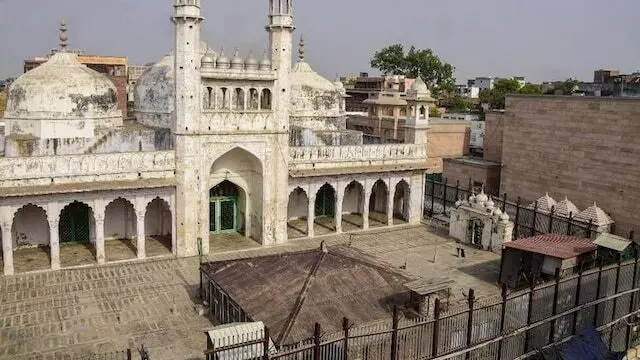
Gyanvapi Masjid case: Varanasi court to announce key decision today
text_fieldsVaranasi district court is set to render a verdict on the merits of the famous Shringar Gauri Gyanvapi Masjid case on September 12. The decision relates to the maintainability of Hindu women's plea seeking permission to worship Hindu deities in the Gyanvapi Mosque complex.
The district judge will render its decision on whether the ongoing trial in court regarding the permission to worship is maintainable and whether the plea is based on tenable grounds.
Ahead of the verdict, prohibitory orders were clamped under Section 144 in Varanasi to avoid any kind of violent situation and maintain law and order in the city.
So far, the mosque committee has submitted that the property belonged to the Waqf Board and the matter cannot be heard before the court. They argued that only the Waqf Board had the right to hear any matter that pertains to the mosque.
A month before the Supreme Court's intervention in the case, the Varanasi civil court had ordered the filming of the Gyanvapi mosque, based on the petition by the Hindu women who claim there are idols of Hindu Gods and goddesses in the Gyanvapi mosque complex.
In May, the Supreme Court assigned the case to the Varanasi district judge's court, shifting it from a lower court where it was being heard till then.
The Supreme Court had ordered: "Keeping the complexity and sensitivity of the matter in view, the civil suit before the civil judge in Varanasi shall be heard before a senior and experienced judicial officer of the UP judicial service."
The report claimed a "Shivling" had been found in a pond within the mosque complex used for "Wazoo" or purification rituals before Muslim prayers. The judge hearing the case at the time had ordered the sealing of this pond.
This filming inside the centuries-old mosque was challenged in Supreme Court by the Gyanvapi mosque committee.
The petitioners said the filming goes against the Places of Worship Act of 1991, which maintains the religious status of any place of worship as of August 15, 1947.

















